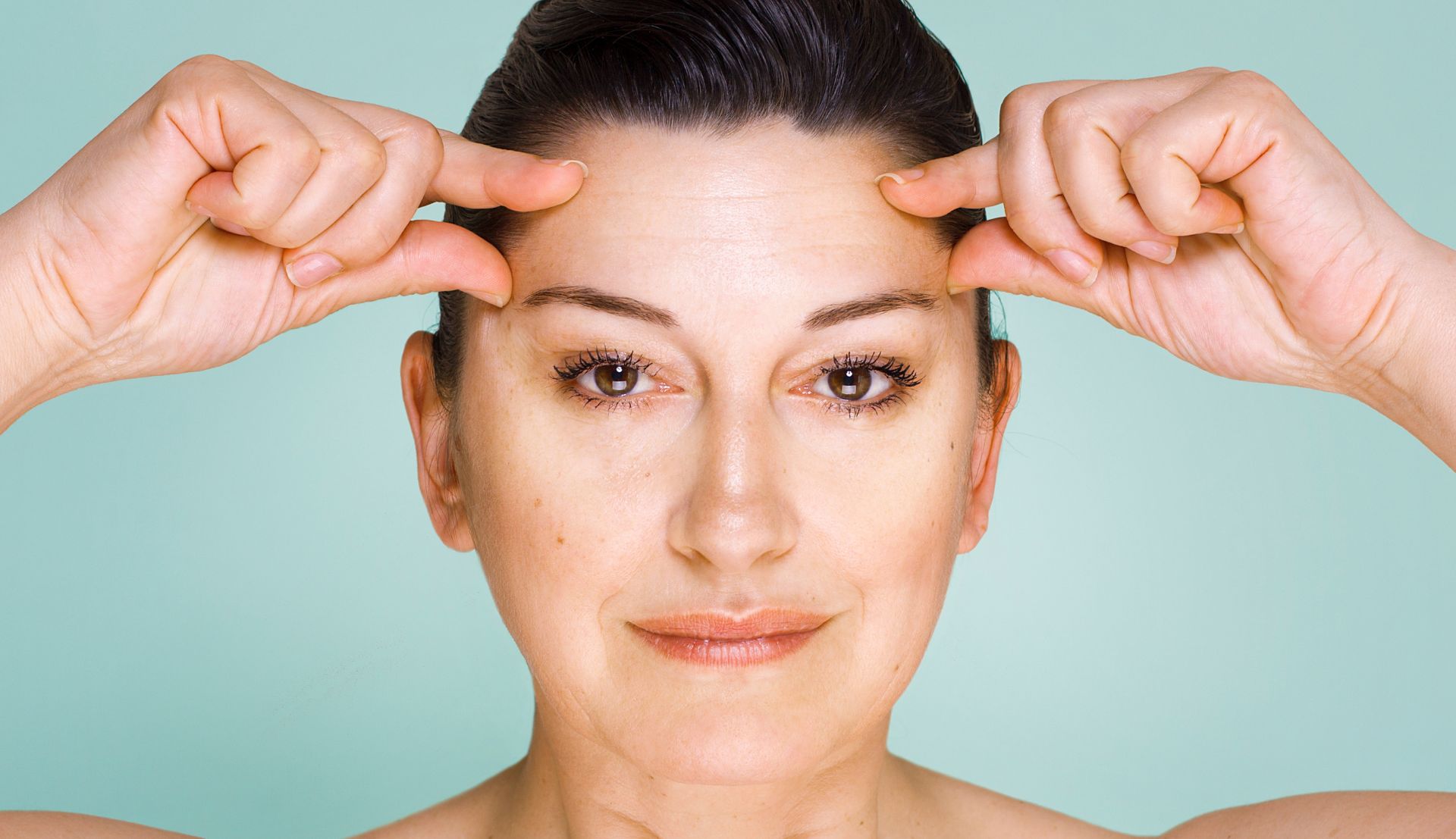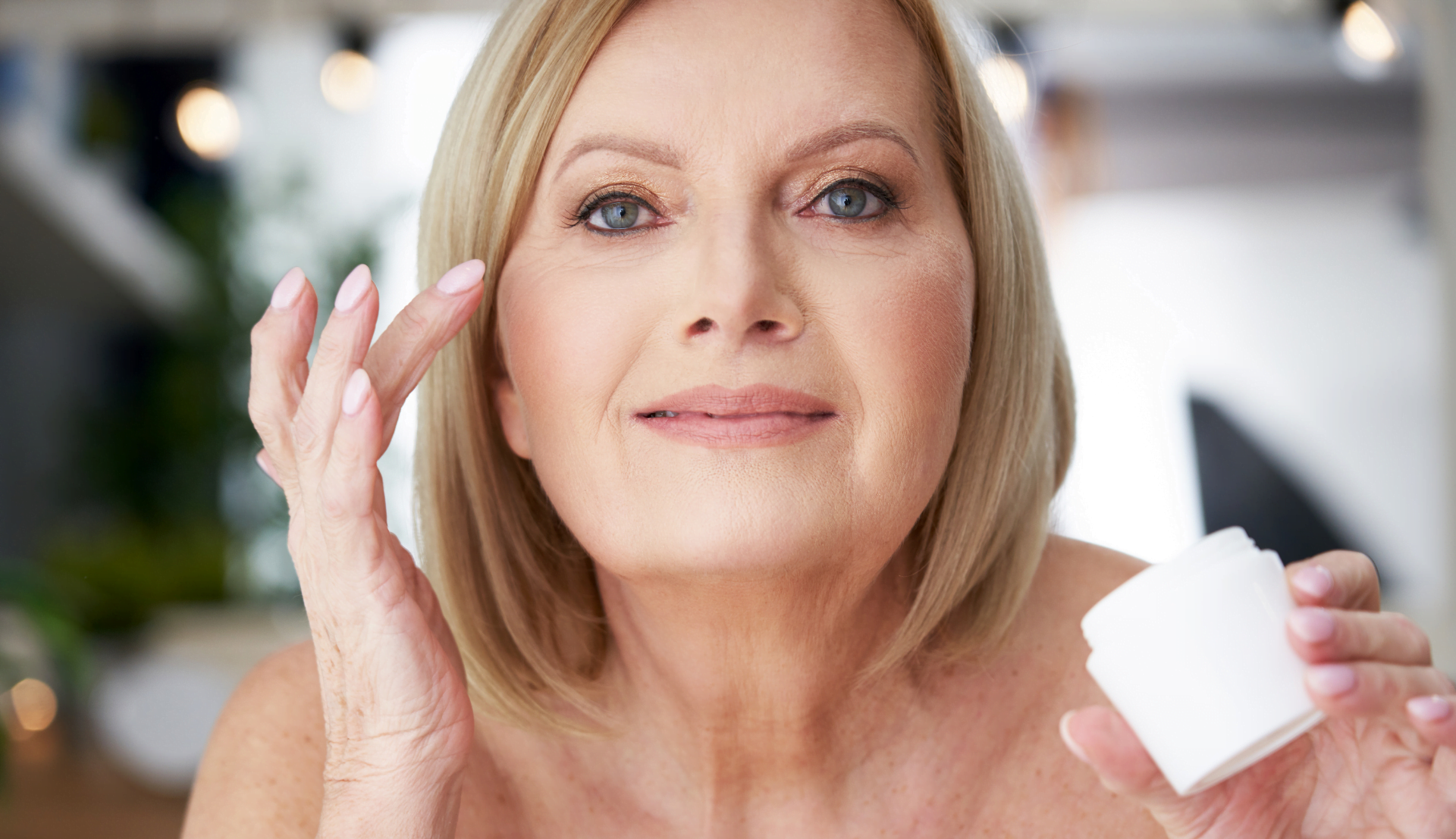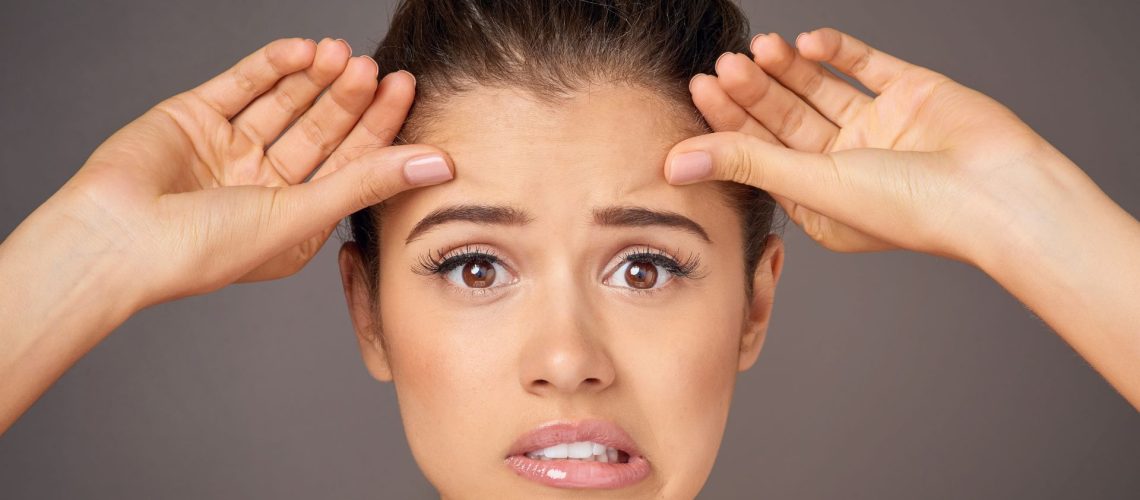A natural part of aging, wrinkles are most noticeable on sun-exposed skin, such as the face, neck, hands, and forearms. Genetics is the primary determinant of skin texture, but What causes wrinkles? First of all, Sun exposure is the leading cause of wrinkles, especially in people with fair skin. Pollutants and smoking also contribute to wrinkle formation. The first wrinkles on a person’s face tend to appear in areas where the skin naturally folds during facial expressions. They occur because the skin becomes thinner and less elastic over time. Wrinkles are a natural part of aging and affect everyone, but if you know their causes, you can prevent them.
What causes wrinkles?
Skin cell production slows down, skin layers become thinner, and when collagen protein is deficient, wrinkles form in the skin.
Collagen is a protein in the body that gives structure to the skin. It’s stretchy and elastic, so it’s easy to move. Their skin resembles a rubber band. As this rubber stretches or moves, it loosens and loses its ability to return to its normal size and shape. As the body’s cells age, their ability to make protein diminishes. This makes it difficult for the rubber to return to its original shape, leading to wrinkles.
There are several factors that cause wrinkled skin.

Aging
Wrinkles are a by-product of maturing preparation. As we age, skin cells partition more gradually and the center layer of skin, the dermis, starts to lean. The dermis incorporates an organization of elastin and collagen strands that give bolster and versatility. As this network loosens and collapses over time, pits form on the surface of the skin.Aging skin has a reduced ability to retain moisture, secretes sebum less efficiently, and heals more slowly. . All of these factors contribute to the formation of wrinkles.
facial muscle contraction
Forehead wrinkles, frown lines, and protruding corners of the eyes (crow’s feet) are caused by contraction of tiny muscles. Familiar facial expressions such as smiles, frowns, and squints make wrinkles more prominent. Over time, these expressions, combined with gravity, contribute to the formation of wrinkles.
Causes Wrinkles, sun damage
Excessive exposure to ultraviolet (UV) radiation from the sun can cause premature skin aging, also known as photoaging. Ultraviolet rays destroy collagen fibers and cause abnormal elastin production. When UV rays damage skin tissue, the body produces enzymes called metalloproteinases. This enzyme produces and reforms collagen. However, in the process, some of the healthy collagen fibers are damaged, resulting in solar elastosis, a disordered formation of fibers. , is formed each time the efficiency decreases.

smoking
Healthy skin is constantly regenerating. Old collagen is broken down and removed from the body to make room for new collagen.Researchers have found that smoking reduces the production of new collagen.A reduction in collagen leads to the formation of wrinkles. increase.
Environmental factors
When pollutants from the surrounding air get into the pores, they can break down the body’s collagen. Some of the most common contaminants in the environment that cause wrinkles include:
Particulate matter:
Particulate matter is the microscopic mixture of solids and liquids in the air and includes dirt, dust, and smoke.
soot:
Soot is a microscopic, solid, carbon-based substance that forms when something burns. Soot is produced in the environment from vehicle exhaust and manufacturing equipment.
Nitrogen dioxide:
Nitrogen dioxide is a gas that is present in the environment. Most common near vehicles, industrial manufacturing facilities, construction sites, and some lawn and garden equipment. Does makeup cause wrinkles?
Not removing makeup clogs pores and limits the body’s ability to produce collagen protein.Not removing makeup can lead to premature aging and wrinkles. At the end of the day, it is important to cleanse your skin to remove makeup, clean pores, and prevent wrinkles. It’s okay to forget to remove your makeup a few times before going to bed, but persistent makeup can clog your pores and damage your skin.
Does caffeine cause wrinkles?
Research into how caffeine, including coffee, affects the skin is still ongoing, but caffeine offers some short-term benefits to your skin care routine. This means that it can change the appearance of wrinkles, but long-term use of caffeine products will not heal wrinkles. An antioxidant that protects the skin.

Wrinkle prevention
Here are some tips to secure your skin and decrease the appearance of wrinkles.
Protect your skin from the sun. Limit time in the sun, especially during the day, and always wear protective clothing such as a wide-brimmed hat, long-sleeved shirt, and sunglasses. Also, use sunscreen when you’re outdoors all year round.
Choose a skincare routine with a sun protection factor (SPF) of 15 or higher. we recommend using a broad-spectrum sunscreen with an SPF of 30 or higher. Apply sunscreen frequently and reapply every two hours. Reapply more often when swimming or sweating.
Use products with built-in sunscreen. When choosing skin care products, choose products with broad-spectrum sunscreens that block both UVA and UVB rays.
Moisturize. Dry skin can cause tight skin cells to shrink, leading to premature fine lines and wrinkles. Moisturizers help lock moisture into the skin and blur fine lines and wrinkles. With regular use of the product, it may take several weeks before you notice any improvement in your skin.

Do not smoke; Even if you’ve smoked for years or are a heavy smoker, quitting can improve your skin tone and texture and prevent wrinkles.
Eat healthily. There is evidence that specific vitamins in your diet can help protect your skin. The role of diet needs more research, but eating lots of fruits and vegetables is a good thing.
Use Dermabiotecnica Plankton Anti Wrinkles because it works on all skin types to repair, protect and regenerate skin. Its hyaluronic acid formula hydrates and plumps skin from within. As a result, bio plankton activates and improves the skin’s regenerative properties.


